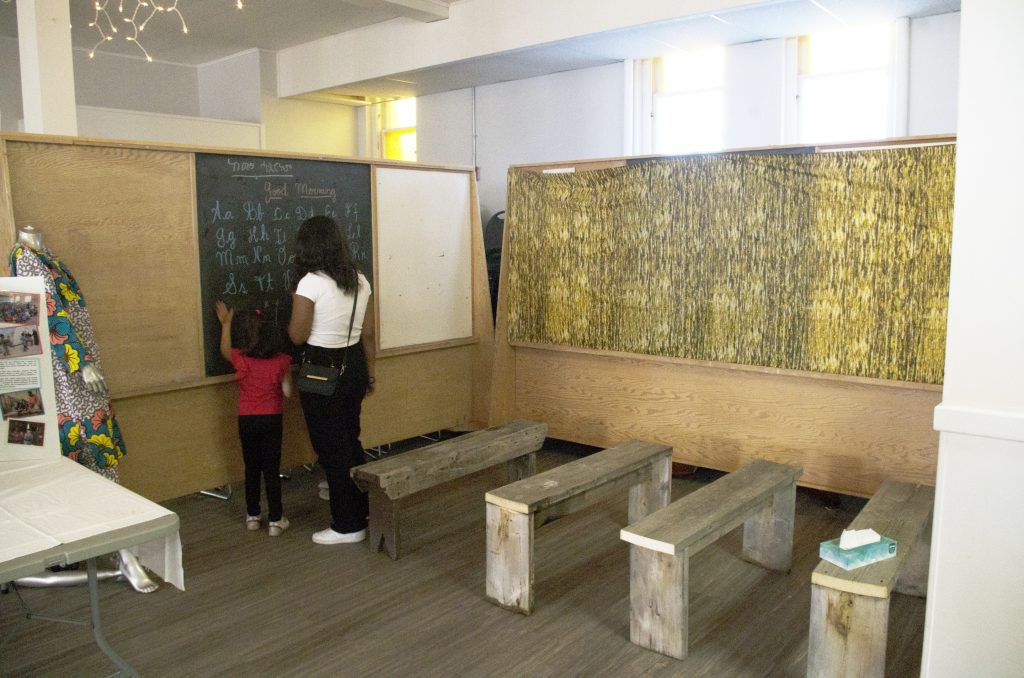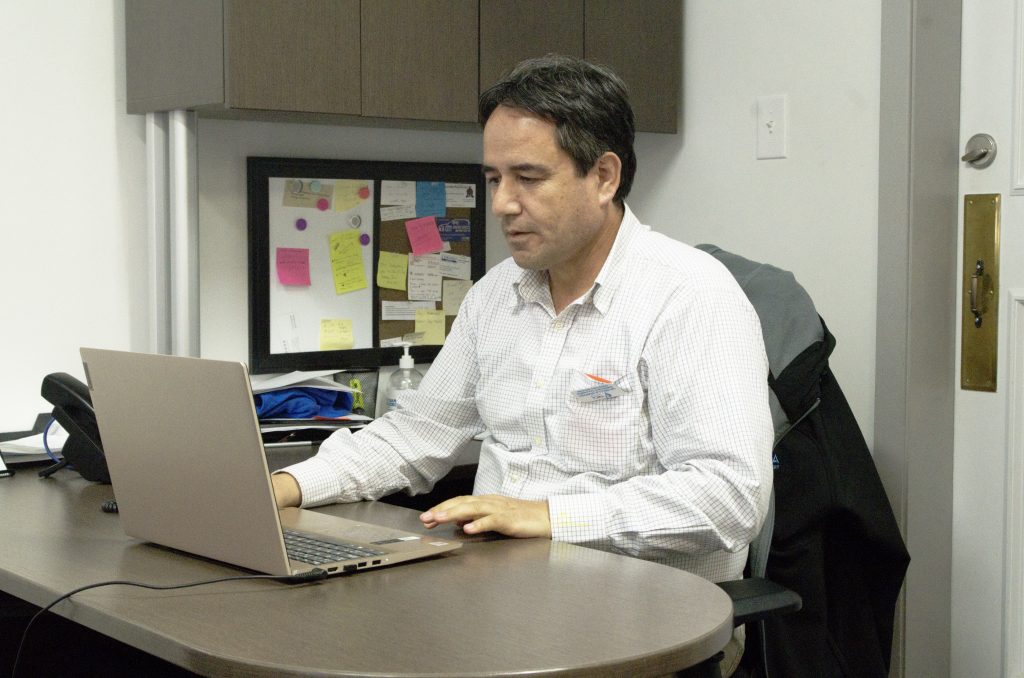
Cramped living conditions, small or non-existent school houses, long walks to the well, and a steady diet of beans and rice.
These are the conditions refugees live through while staying in refugee camps across the world, and it’s the conditions the Prince Albert YWCA wanted to recreate as part of World Refugee Day.
YWCA Settlement Services manager Carolyn Hobden said it’s one thing to hear about refugee camps second hand, but to experience them, even in a small recreation like this one, can change how people view refugees.
“I hope (visitors) get a new insight to what happens to people when war breaks out in their country,” Hobden explained. “It becomes more of a reality when you see how many rations you would get at a refugee camp, how far you would have to travel for water, how you would have to move in a very small dwelling, and how you would have to move very quickly.”
Hobden and other Settlement Services volunteers and employees recreated a mini-refugee camp in the basement of their headquarters on 11th Street East for Refugee Day. The event also featured live music, food, and a chance to hear from Prince Albert residents who once lived in refugee camps.
Hobden hopes the event will help residents born and raised in Canada understand the challenges refugees have to overcome before arriving in Canada.
“If they (refugees) had the choice, they would be home where their family is, where their friends are, where the language is familiar, where the culture is familiar,” Hobden said. “Everything is new here and you have to learn everything about your new community all over. It’s a difficult life.”

Najibulla Sorosh never spent time in a refugee camp, but he understands many of the challenges refugees go through. As a settlement counselor at YWCA Settlement Services, he helps new refugees get settled in Prince Albert.
He said education, language, and mental health are the biggest barriers refugees face to integrating with Canadian society. Many have experienced traumatic events in their home countries, and their time in refugee camps means they cannot keep up with training and schooling.
Sorosh said it’s not uncommon for refugees with professional skills to arrive in Canada without proper certification due to the months or years they’ve spent in refugee camps. He also said some children who live in refugee camps will have gone months or years without going to school. They will all have to make up for lost time, and many of them don’t speak English or French, adding to their difficulties.
Despite the challenges, Sorosh said many refugees thrive in Prince Albert. They simply need the right opportunities.
“Tonnes of opportunities are available here, but we still want to have more (of them), because as much as refugees who are coming here receive these opportunities, they will be able to integrate sooner to the community, to be an active part of the city,” Sorosh explained.
Although Sorosh never lived in a refugee camp, he still knows what it’s like to leave everything behind and free his home.

He came to Canada from Afghanistan, where he helped found two schools: Marefat High School and Pegah High School. Both schools had male and female teachers educating male and female students, and that made Sorosh and others a target when the Taliban regained power.
Despite the danger, Sorosh said it was very hard for him and his family to leave.
“We wanted to make a change in our country,” he said. “We wanted to be a generation that stopped the endless war in our country and make a new life in our country.
“With the support of the international communities who were in Afghanistan during these last 20 years, we were very hopeful about our future, and unfortunately when … our previous government collapsed, we lost our hope and we lost our expectations.”
Sorosh and his family fled to northern Afghanistan before leaving for the Middle East, then flying to Mexico City. They spent two weeks in Mexico getting their paperwork in order before moving to Saskatoon, and then Prince Albert.
“We were very hopeful about our future. We never thought one day we will go out, and then unfortunately the government collapsed and the Taliban took over all of Afghanistan,” he said. “Not just for me, but for all my family, it was very difficult. We didn’t know about Canada and Canadian culture. To be honest, we were very concerned at that point because we were not hopeful (about) what would happen to us.”
Despite his concerns, Sorosh said hope has returned to him and his family. Now, he’s focused on helping other new refugees find hope in Prince Albert too.
YWCA Settlement Services works with around 400 refugee clients. That list does not include refugees who moved to Prince Albert, but have since become self-sufficient.
The organization expects another 200 refugees to arrive in Prince Albert by March 31, 2024.

